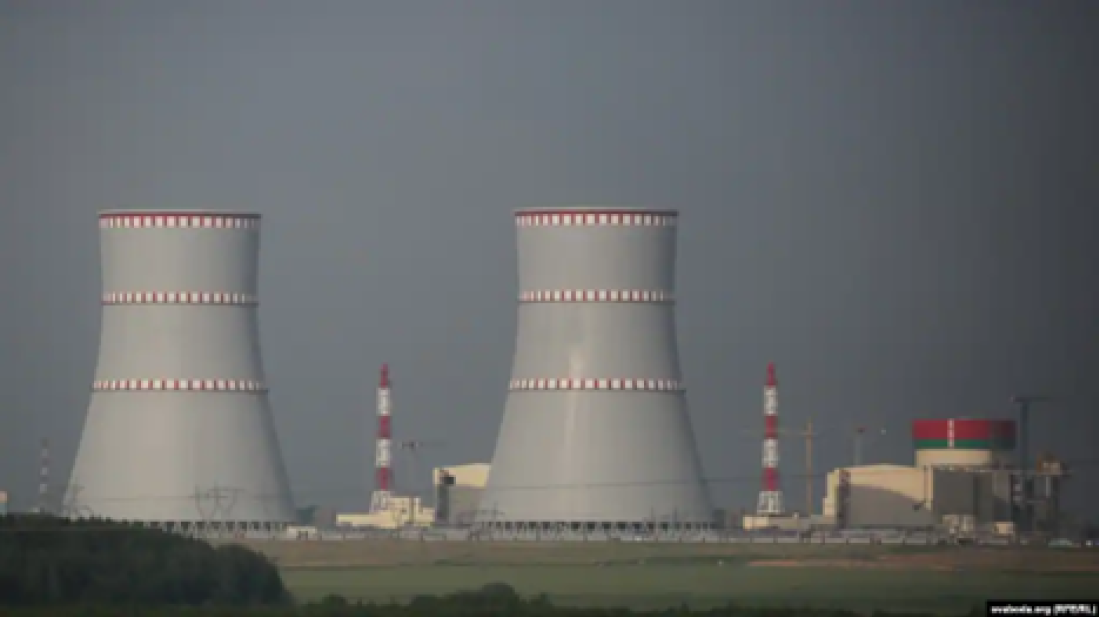AnewZ Morning Brief - 22 February, 2026
Start your day informed with AnewZ Morning Brief. Here are the top news stories for the 22nd of February, covering the latest developments you need to...

On August 8, 2025, a ceremonial event marking the start of construction of Kazakhstan’s first nuclear power plant (NPP) will take place near the village of Ulken in the Zhambyl district of Almaty region. The project is being implemented by the Russian state corporation Rosatom. The announcement was made by Kazakhstan Nuclear Power Plants (KNPP), a subsidiary of the Samruk-Kazyna sovereign wealth fund and the designated operator of future nuclear facilities in the country.
According to the official media announcement, the ceremony will include speeches by government and industry representatives, the launch of drilling operations for soil sampling, and the symbolic handover of a capsule to the Russian side for further research.
While KNPP has been appointed as the operator for all future nuclear plants in Kazakhstan, the company is currently under the trust management of the Atomic Energy Agency, which oversees the implementation of the project in cooperation with international partners.
Rosatom was previously confirmed as the leader of the international consortium tasked with building Kazakhstan’s first nuclear power plant, which will be located on the shores of Lake Balkhash. The plant will consist of two power units with a total capacity of 2.4 GW. According to the Atomic Energy Agency, commissioning is expected between 2035 and 2036. The project’s minimum estimated cost is $14 billion, as stated in June by the agency’s chairman, Almasadam Satkaliyev.
Meanwhile, the Chinese company CNNC has been named the lead developer for Kazakhstan’s second and third nuclear plants. Specific details about their location, capacity, and construction timeline have not yet been announced. First Deputy Prime Minister Roman Sklyar has suggested that CNNC may complete its project faster than Rosatom.
Previously, the Ministry of Energy, before responsibilities were transferred to the Atomic Energy Agency, and industry experts estimated the cost of a 2.4 GW nuclear plant in Kazakhstan at between $10 billion and $15 billion. However, in August 2024, a CNNC representative told the publication Kursiv that the company could implement a similar project for approximately $5.6 billion, converted from Chinese yuan.
In the early stages of the project, Kazakhstan considered four potential technology providers. These included CNNC with its HPR-1000 reactor, Rosatom with its VVER-1200 and VVER-1000 reactors, South Korea’s KHNP with the APR-1400, and France’s EDF with the EPR1200 reactor. The initial plan was to choose a partner by the end of 2022, later postponed to the end of the first quarter of 2023. Ultimately, the final decision was made following a national referendum. In October 2024, 71.12% of Kazakh citizens voted in favor of building a nuclear power plant.
In March 2025, President Kassym-Jomart Tokayev stated that Kazakhstan should not stop at just one plant, but build three. He emphasized that developing a nuclear energy sector is vital for creating a new industrial base that can support the country’s long-term economic growth.
However, the project has drawn criticism from environmentalists, who are concerned about its potential impact on Lake Balkhash. Public activists and political analysts have also raised concerns about Russia’s involvement, warning that it could deepen Kazakhstan’s energy dependence on its neighbor.
Quentin Griffiths, co-founder of online fashion retailer ASOS, has died in Pattaya, Thailand, after falling from the 17th floor of a condominium on 9 February, Thai police confirmed.
A seven-month-old Japanese macaque has captured global attention after forming an unusual but heart-warming bond with a stuffed orangutan toy following abandonment by its mother.
Ukraine’s National Paralympic Committee has announced it will boycott the opening ceremony of the Milano Cortina 2026 Paralympics in Verona on 6 March, citing the International Paralympic Committee’s decision to allow some Russian and Belarusian athletes to compete under their national flags.
Divers have recovered the bodies of seven Chinese tourists and a Russian driver after their minibus broke through the ice of on Lake Baikal in Russia, authorities said.
President Donald Trump said on Saturday (21 February) that he will raise temporary tariffs on nearly all U.S. imports from 10% to 15%, the maximum allowed under the law, after the Supreme Court struck down his previous tariff program.
Iran announced on Saturday that it has designated the naval and air forces of European Union member states as “terrorist entities” in a reciprocal move after the EU blacklisted the Islamic Revolutionary Guard Corps (IRGC).
At least 10 people were killed and 50 wounded in Israeli strikes in Lebanon's Bekaa Valley on Friday (20 February), two security sources told Reuters, after the Israeli military said it had targeted Hezbollah sites in the Baalbek area.
Iran’s Foreign Minister Abbas Araghchi on Saturday (21 February) dismissed U.S. claims that 32,000 civilians were killed during protests in Iran. He said Tehran has already released official figures and called for evidence to support any higher estimates.
Uzbekistan's president Shavkat Mirziyoyev has held a series of high-level meetings in the U.S. aimed at strengthening bilateral economic and strategic ties between the two countries.
Türkiye has signalled readiness to contribute to a proposed Gaza stabilisation force during the inaugural Board of Peace meeting on Thursday (19 February), but according to former Turkish diplomat Mehmet Öğütçü, the decisive factor will be whether Israel and the United States agree on Ankara’s role.
You can download the AnewZ application from Play Store and the App Store.

What is your opinion on this topic?
Leave the first comment